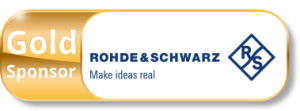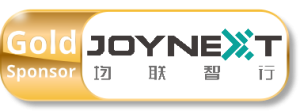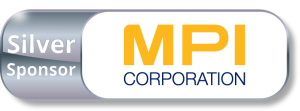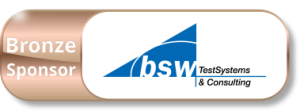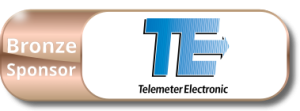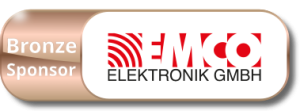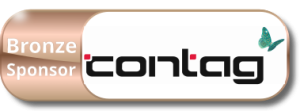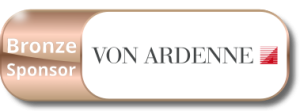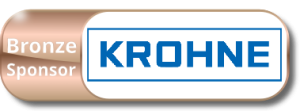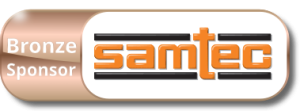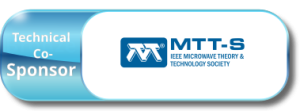WS01 – Workshop on Energy-efficient Electronic Systems for the Tactile Internet
Organized by: Jens Wagner, Johannes Partzsch, Krzysztof Nieweglowski and Frank Ellinger (all TU Dresden)
The Tactile Internet presents unique requirements, especially for electronic systems. Apart from low latency, those systems have to be as small as possible to allow for sensor data gathering on the human body. To make this possible, several research groups joint forces and combined their expertise on analog and digital integrated circuit design and electronic packaging. This allowed for an optimization of components in every domain but also sparked new solutions at the interfaces, making the result more than the sum of its pieces. We are going to present the results of this research, talk about the application within a unique, interdisciplinary environment and give an outlook towards future developments such as energy-autarkic (“zero energy”) or self-supplying systems and the trend towards circular economy.
WS02 – Integrated Sensing and Communications (ISAC): RF Hardware Enablement – antenna, front-end design and system-level perspectives
Organized by: Padmanava Sen and M. Sajjad Ahmad (Barkhausen Institut)
This workshop focuses on the topic of hardware enablement for integrated sensing and communications (ISAC)/ Joint communications and radio sensing (JC&S) in the scope of upcoming 6G technology. The niche of ISAC technology in the future 6G ecosystem, as well as several potential applications, will be discussed in the context of hardware enablement. The different options depending on the frequency bands of use will be discussed. After presenting the state-of-art for the common communication and sensing frontend architectures and antenna options, potential candidates for the ISAC scenarios will be discussed. Self-interference-cancellation topic will be elaborated in detail as a key enabler for hardware reuse. A detailed analysis of the Key Performance Indicators (KPIs) for communication, radar, and joint systems will be covered. Insights on system level and measurement validation using specific test beds will also be given. Future perspectives and next steps on the path of enabling joint communication and sensing technology will be given at the end of this workshop.
WS03 – Workshop On Microwave And Millimeter-Wave Characterization Of Materials In 1–170GHz Range
Organized by: Marzena Olszewska-Placha (QWED Sp. Z o.o., Poland), Bartlomiej Salski (Warsaw University of Technology, Poland), Andreas Henkel (Rohde&Schwarz, Germany)
This workshop focuses on presenting state-of-the-art and novel microwave and millimeter-wave material characterization techniques (1–170 GHz) using resonant methods.
- In part 1 we discuss measurement techniques for 1–30 GHz, focusing on dielectrics, semiconductors, and copper foils characterization using SPDR and Q‑SCR.
- In part 2 the Fabry-Perot Open Resonators (FPOR) for wideband material characterization across 15–170 GHz is highlighted.
- Key Focus Areas of the workshop will be method advantages/limitations, measurement aspects, error, and uncertainty analysis.
- Practical Implementation: Presentations, hands-on session with device manufacturers/developers, and Vector Network Analyzer (VNA) operation training for material measurements.
WS04 – IHP’s Open Source SG13G2 PDK: Advancing RF and mm-Wave Design
Organized by: IHP
This workshop introduces IHP’s open source SG13G2 Process Design Kit (PDK), designed to facilitate innovative and accessible integrated circuit design for academia and small-scale industry. The IHP OpenPDK offers a comprehensive feature set tailored to support collaborative design workflows and advance high-frequency applications.
The session will highlight the DI-DEMICO project, which utilizes the PDK to push the boundaries of RF and mm-wave design. Attendees will learn about key capabilities of the PDK, its role in enabling novel design methodologies, and its impact on research and development in high-frequency technologies.
By combining insights into open-source EDA tools with practical applications, this workshop provides participants an opportunity to explore cutting-edge advancements and discuss future possibilities in RF and mm-wave design.
WS05 – Advanced Methods for Measurements and Calibrations supporting Broadband 6G component test with Modern VNAs
Organized by: Joel Dunsmore and Axel Hahn, Keysight
Time to upgrade your understanding of what’s possible: Substantial advances in modern VNA capabilities in the past two years to enable precise testing of 6G components, including fully characterization of S‑parameters, Compression, Noise Figure and most particularly modulated measurements such as EVM.
This workshop will detail the best practices for using VNAs with Sub-THz frequency extenders for standard S‑parameter measurements and new capabilities to generate, calibrate, and measure complex modulated signals. This new capability is particularly important in sub-THz bands, where current state-of-the-art methods require generating baseband modulated signals and up-converting them to the sub-THz band; this process adds amplitude, phase and distortion errors. Using calibrated VNA-based measurements, these errors can be corrected using Digital Pre-Distortion (DPD) to generate pure modulated signals in these bands.
Finally, the bandwidths proposed for 6G are much wider (up to 20 GHz or more) than current signal analyzer capabilities in the industry, but using synchronous VNA measurement methods, we show demodulation capabilities, using Vector Spectrum Analysis software (Keysight’s 89600 VSA) demonstrating less that 1% EVM floor at 250 GHZ center frequency. All of these techniques can be used without frequency extenders for lower frequency applications such as Ku and Ka band sat-com bands, and these will be discussed as well.
WS06 – RCS and RIS Measurement Workshops
Organized by: Ferdinand Gerhades (Anritsu)
This workshop consists of two parts:
E‑Band VNA — RCS Measurement Workshop
The radar cross section (RCS) of a target is the equivalent area seen by a radar. It is the fictitious area intercepting that amount of power which, when scattered equally in all directions, produces an echo at the radar equal to that from the target. The RCS of a target can also be interpreted as a measure of its degree of visibility to a radar. Target RCS measurements are usually performed in the 1 to 20 GHz frequency range, for some smaller objects even up to 40 GHz or even in the millimeter-wave e.g., for passive millimeter-wave identification tags.
This workshop is utilizing a novel E‑Band VNA MS46522B-082 for 55–92 GHz Over-the-Air (OTA) Applications. The participant will built-up an OTA setup using the VNA and a pair of dielectric high gain antennas to measure the reflectivity of some standard spherical objects and try to calculate the RCS thereof.
PhaseLync — RIS Measurement Workshop
Metamaterials allow the manipulation of their electromagnetic reflection and refraction characteristics. They are key for Reconfigurable Intelligent Surfaces (RIS) concepts and provide a solution to the commonly valid expectation of specular reflections, i.e. they allow arbitrary angles of reflection. The same applies to refraction angles when using transparent metamaterials. Furthermore, shaping the reflected signal (in terms of beam width, for instance) is also possible, as it is changing the polarization planes.
In this workshop, the participant is using a novel distributed VNA concept based on ME7869A up to 43.5 GHz and aims to measure the specular reflection of a TMYTEK active RIS and gaining various Figure of Merit (FOM). The measurements and FOM can be compared using a MS2760A Ultraportable Spectrum Analyzers, one of the smallest formfactors for millimeter-wave measurements up to 170 GHz nowadays.


